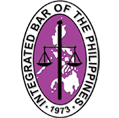
The First Virtue
A participant’s write up about the first Session of the Trial Academy
By: Atty. Karyna Sencio
“Without respect for truth, the practice of law becomes meaningless.” Court of Appeals Associate Justice Gabriel T. Ingles was lecturing on the finer points of the legal profession on Day One of the Trial Academy.
The Academy is a mentoring program for new lawyers. It is a bold undertaking by the Integrated Bar of the Philippines Cebu chapter designed to supplement a purely philosophical knowledge of law with practical exercise. It is a tacit admission that modern legal education has produced an unintentional vacuum in their curriculum: law schools produce graduates with the objective of helping them pass the Bar, but neglect to train them in the actual practice of law. A glaring omission not felt more profoundly than when standing before the entire Supreme Court at oath-taking.
Barely three weeks ago, I had taken my oath as a lawyer and promised to conclude a proclivity for engaging in law as a purely philosophical exercise in online argumentation. Real work was expected, and the Chief Justice helped drive home that point when she said some truly scary words, like “vehicles of reform,” “duty to society,” and “unswerving dedication . . . to the public good.” I have heard and read (and occasionally, written) those words before, but somehow they weighed heavier taken into consideration the venue in which they were uttered. There was also that realization that, beyond the abstract, I had no idea how the law works.
It’s a real issue, this knowledge gap between what the law is and how the law is applied, which the IBP Cebu chapter is attempting to address. For its first day, Justice Ingles and Atty. Democrito Barcenas were guides.
The lecture was decidedly not a review, but a cautionary tale on complacency and legal machinations. “The tragedy,” Justice Ingles said, “is when lawyers resort to manueverisms to win.” Tolerance, if unchecked, becomes practice. A sentiment which Atty. Barcenas echoed when he bleakly remarked, “Sometimes the law is not used for justice but for injustice.”
At the core of the practice of law, ethics is paramount. Apt then that the first lecture would focus so strongly on the need to cultivate idealism in new lawyers. The practical application of legal knowledge must always include a lesson in ethics, Justice Ingles intoned, because whether someone is ethical or not will effect the administration of justice. This is the first and most important lesson. For the first virtue of a lawyer is the respect for truth.
